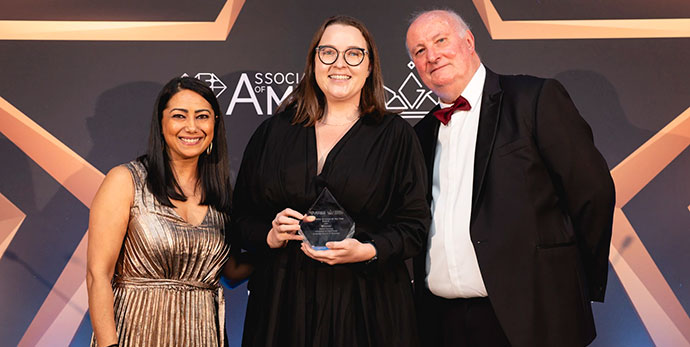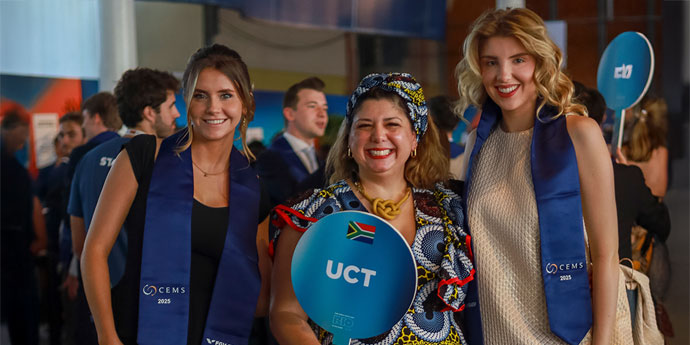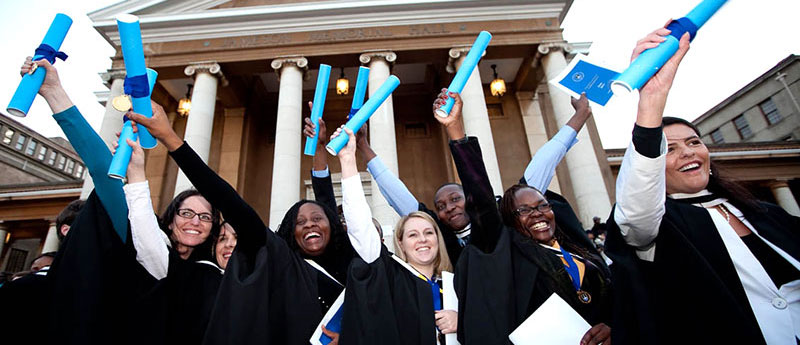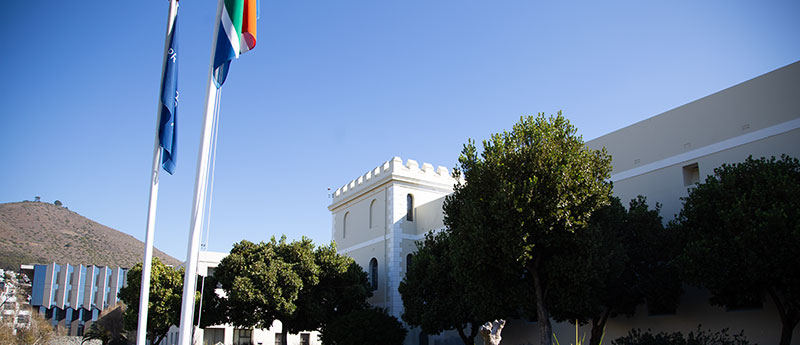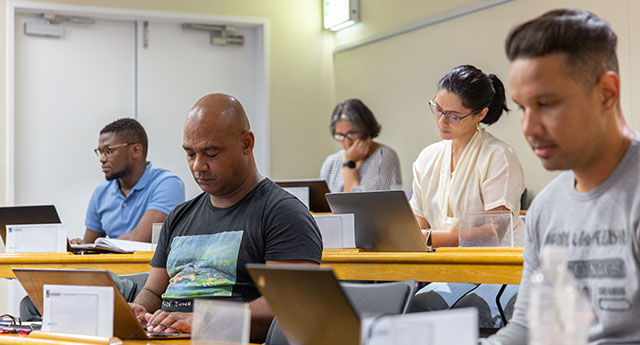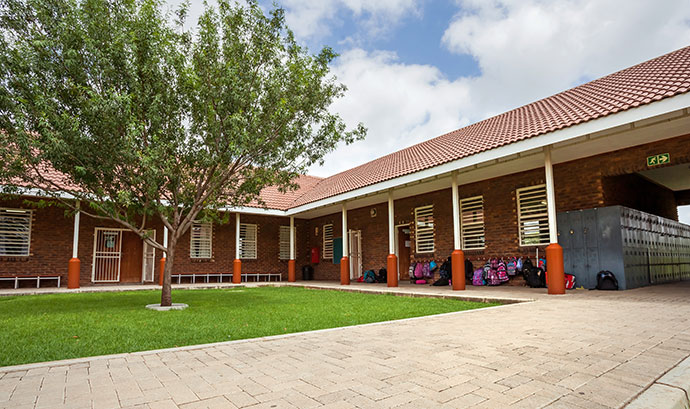UCT GSB alumnus Deon James has been a force for change in the energy industry for more than twenty years. He describes his career trajectory since graduating from the part-time MBA programme in 1990.
Like many of his MBA classmates who turned up for orientation week at the old GSB campus in February 1989, Deon was armed with an engineering degree and the conviction that as a technocrat, he needed to explore a more balanced approach to work and life. Deon had graduated from UCT’s Mechanical Engineering department in 1983 as an AECI - SA Nylon Spinners scholarship holder, and was employed in the AECI — Vynide facility during his studies and for some years afterwards. He cites his thesis in Worker Participation both as evidence of his success in shifting his focus to the acquisition of softer skills, and as a tribute to the perseverance of his advisor, Professor Frank Horwitz.
“I can’t thank Professor Horwitz enough,” laughs Deon. “It wasn’t a great thesis but for me the experience was a game changer.”
A keen cyclist, during his stay at the GSB, Deon masterminded the MBA class of 89/90 Argus Cycle Tour team challenge. He has led the group’s participation every year since the first race in 1990. “In 27 years I’ve missed only one year,” he says, “and that was in 2004 when my wife was in labour!”
Eskom and Swedpower
In 1994, Deon moved to Eskom Peaking Generation — “the prettier side of SA Generation” — and as Engineering Manager was responsible for the Palmiet and Drakensberg pump storage schemes, the Gariep and Van Der Kloof run of river hydro, and the Port Rex and Acacia gas turbine power stations. A further move to Eskom Distribution in 1997, with responsibility for the technical operations of the Western Cape area, led to an invitation by Swedpower (Sweden) to represent Eskom in a 27 nation study group examining Scandinavian electricity market operations.
Says Deon, “The study group numbered power experts from across Asia, Africa, and South America. It was 2002 and our brief was to take what we had learned back to our home countries, share with our colleagues the possible future scenarios for the industry, and apply the principles to the local situation.”
He adds, “At that time, Eskom was performing very strongly. As the mainstay of the country's credit ratings, the company was too comfortable to change.”
The Philippines
A somewhat different situation in the Philippines, and an invitation from a Swedpower colleague to assist with the process of electricity market transformation in that country, piqued Deon’s curiosity and he grasped the opportunity. He explains, “Due to the ever-increasing public debt burden emanating from its government run generators, the Philippines was already quite advanced in its market thinking. They had begun the process of privatising electricity generation, and a part-private, part-public distribution utility model was already in place.”
Since 2004, Deon has presided over full transformation as CEO of a Philippine distribution utility. He has also participated in the transformation of the wider Philippine electricity market as a director of the Philippine Electricity Market Corporation, a position he has held since 2006.
In the ensuing years Deon has maintained close contact with the GSB, consulting regularly with Professor Anton Eberhard, particularly on the challenges inherent in tackling political interference and monopolistic behaviour. “It could be time for a PhD!” he jokes.
Frequent visits to Cape Town for the cycle tour and on family business help still the longing for koeksisters, melktert, and the humour which Deon associates most fondly with his home town. Nevertheless, he says adapting to a foreign culture is an ongoing process. One sacrifice he has had to make is replacing his own accent with an American twang in order to be understood by the locals.
Deon has married his Swedpower colleague and they have three children. Adam, his older son, is a UCT student. Says Deon, “Unlike me, Adam has an affinity for languages. What I am proud to have transferred to him is the key lesson I learned at the GSB: Success in any field requires a focus on process and end goals. I will be forever indebted to the GSB faculty and staff and my colleagues for a transformative experience which opened the doors to a career and life I could not otherwise have imagined.”

